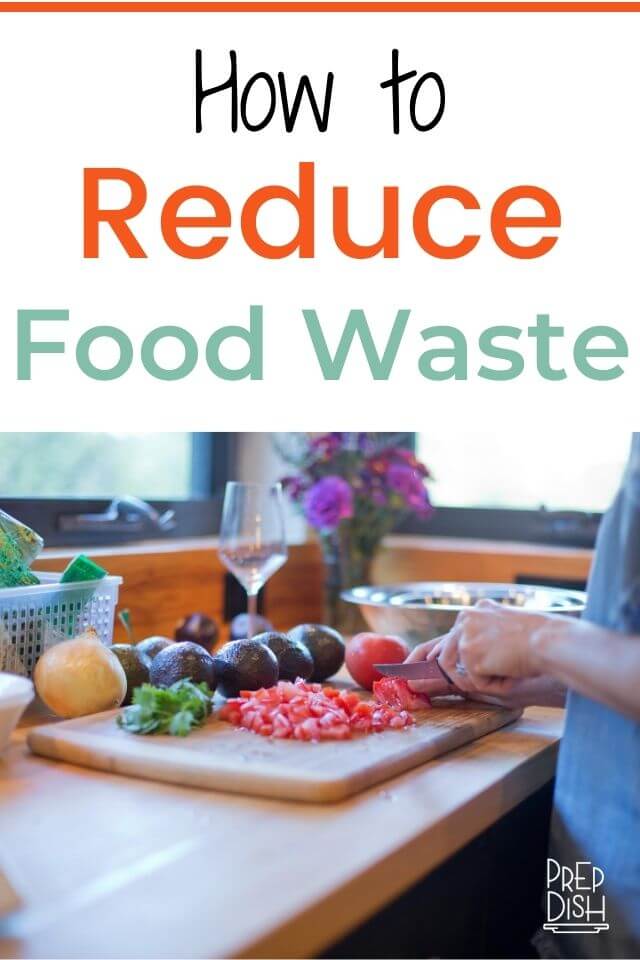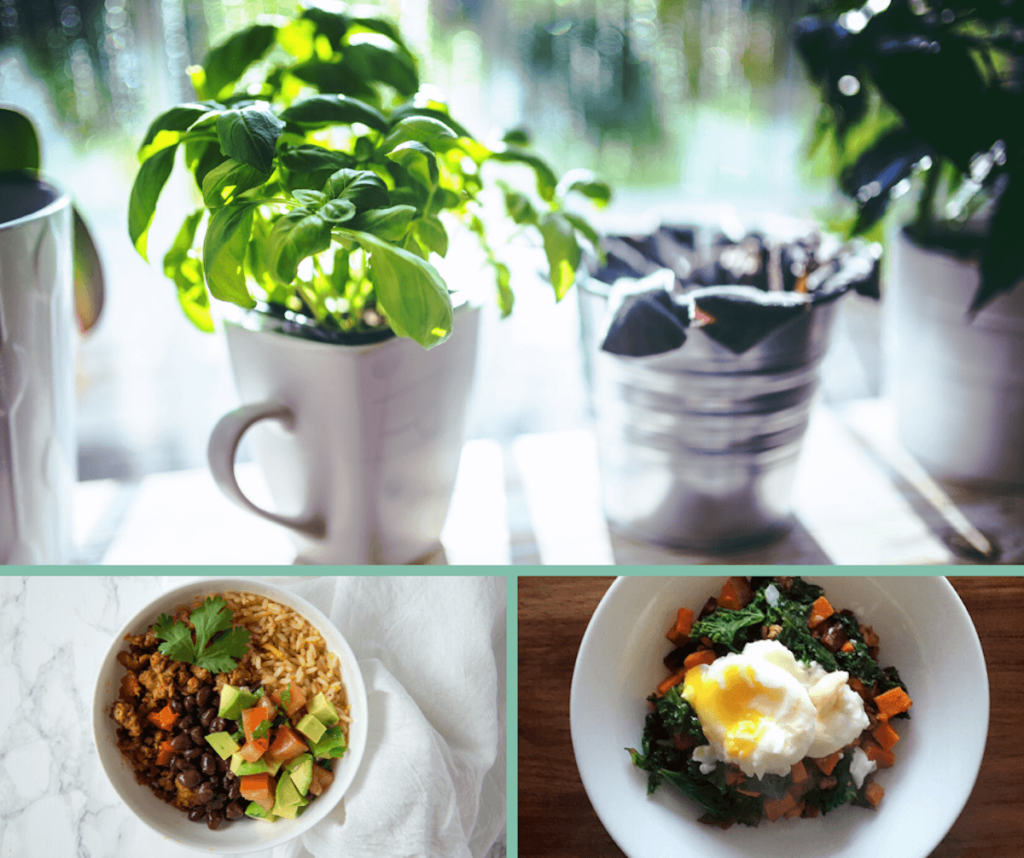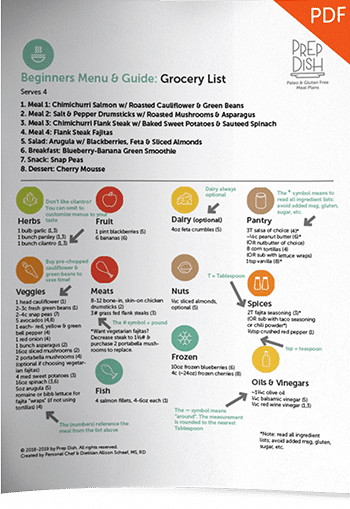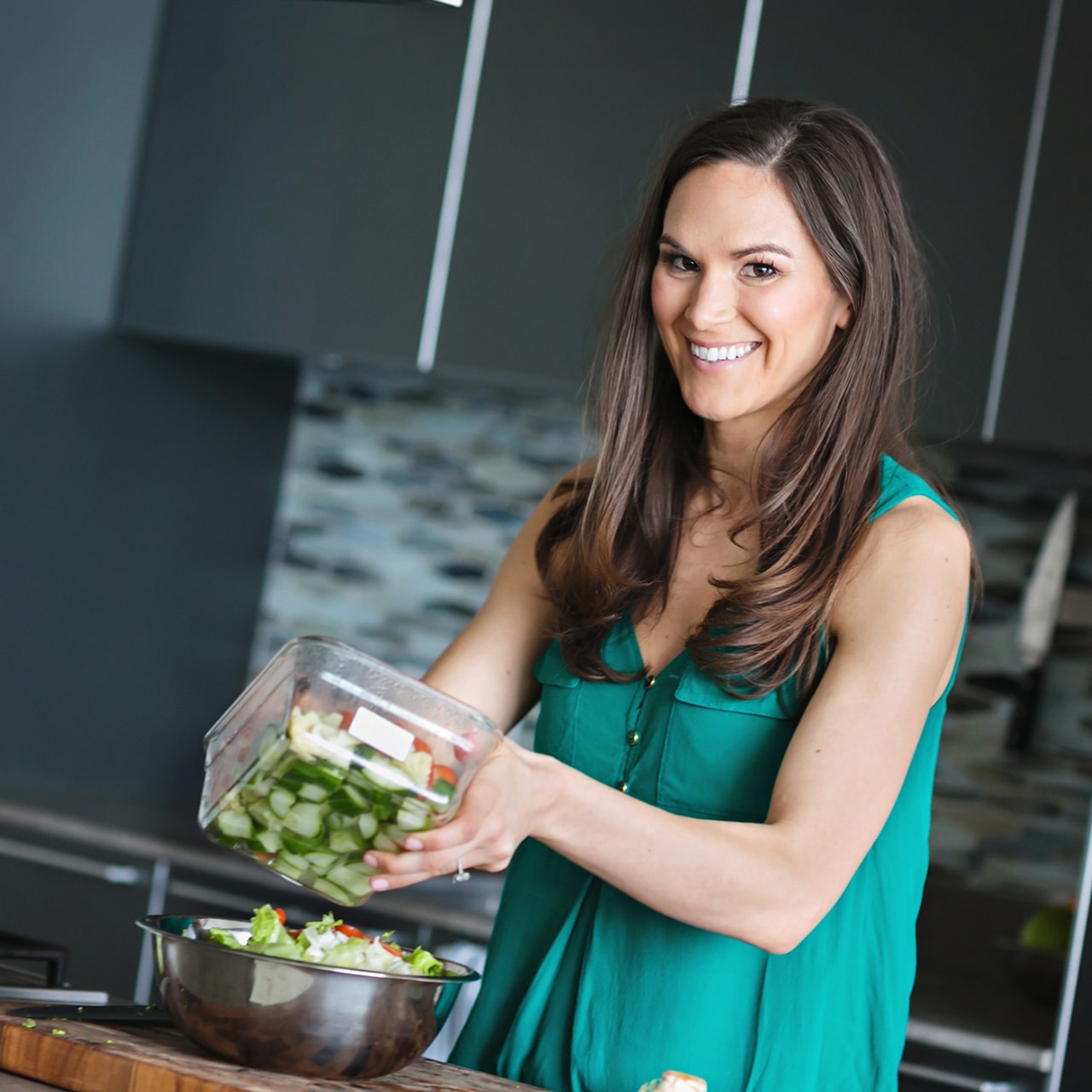If you are wondering how to reduce food waste, you are certainly pursuing a worthy cause!
Did you know that the USDA estimates food waste makes up 30-40% of our food supply in the United States?
Some of this is at the production level, before food ever reaches our kitchens, but still, an average American family of four wastes $1600 worth of food each year according to the EPA.
Yikes! That is kind of staggering. Both in terms of protecting the environment and protecting your grocery budget. Working to reduce food waste is more important than ever.
It can be easier said than done though. Having an organized meal plan and grocery list certainly goes a long way toward reducing waste – you’re much more likely to use what you buy if you have a plan! I think there’s more we can do though.
Here are my best tips to reduce food waste and move toward a zero waste kitchen in your home.
1. Grow your own herbs
Herbs are so delicious and have so many health benefits, but many recipes only call for a tablespoon or two of chopped herbs. It can be hard to use the rest of the package before they go bad.
Instead, try growing your own herbs in pots. This makes it so easy to snip some to add to a salad or frittata and eliminates waste!
2. Choose ingredients strategically to reduce food waste
If you’re making a recipe that calls for half an onion, try buying shallots instead! This way you can use just what you need without the leftover produce.
Similarly, if you have a recipe that calls for 2 stalks of celery, try incorporating another recipe that week that uses celery (or make ants on a log for the kids!) or sub a different crunchy vegetable like a bell pepper if you know your family won’t use up all the celery.
3. Make a breakfast scramble
If you do wind up with random bits of vegetables in your fridge, try turning them into a breakfast scramble. Saute the veggies and either scramble them with eggs or add a couple of poached or fried eggs on top and you have an easy breakfast that also cleans out the fridge. You just may discover a new favorite flavor combo!
4. Make a rice bowl
A rice bowl is another great way to use up extra veggies or meat. Choose whatever base you have around (rice, quinoa, cauli-rice, so many choices!) and simply top with what you find in your fridge, making sure you include some sort of protein. This can make a great easy lunch.
5. Start a broth bag
Did you know you can make your own vegetable broth using scraps you would otherwise throw away?
It is incredibly simple! Just toss scraps like carrot tops, celery tops, an extra knob of ginger, the end of an onion etc. into a freezer bag (make sure to wash the vegetables before peeling or chopping so the scraps are clean).
You may want to avoid cruciferous veggies like cabbage and broccoli, which can impart a strong bitter taste.
Keep the bag in the freezer and when it’s full, add the scraps to a big pot of water. Bring to a boil, reduce heat, and simmer for an hour. Then you simply strain out the vegetable scraps and you have a delicious broth!
Finding ways like this to use scraps that would otherwise go straight in the garbage is a great way to get closer to a zero waste kitchen.
6. Use your freezer
If you make a big batch of chili and you know there is no way your family will eat the whole thing that week, stick some in the freezer! It will taste much better pulled from the freezer in a few weeks than at the end of the week when it’s not as fresh and everyone is tired of it.
Make sure to label everything you have in the freezer so you know what it is and how long it’s been in there.
7. Scan your pantry (& cut your grocery budget!)
I talk about this in my video on how to make an organized grocery list. Scan your pantry (and fridge!) before you go to the grocery store to make sure you don’t re-purchase something you already have. You can also check if you have anything that’s getting close to expiration so you can make sure to build it into the week’s meal plan.
8. Prep ahead!
This is of course my favorite tip :). Seriously though, it’s easy to buy a bunch of produce with the best intentions. Then the week gets busy and there’s simply no time to cut up that celery or bell pepper when you need a quick snack.
Avoid the problem altogether by washing and chopping ahead so you have a fridge full of fruits and veggies that will actually get eaten, not thrown in the bin.
Want to save for later? Pin the image below!





0 Comments